If you have hard tap water in your house, you’ve probably experienced dry, dull, and weak hair. So have I!
After years of research and trial and error, I’ve settled on the best ways to deal with this problem.
Here are 4 tips for washing hair in hard water:
1. Treat Hard Water by Using a Water Softener
My first tip would be to get a whole-house water softener.
Water softeners are designed to treat hard water minerals and debris that sticks to the hair and skin.
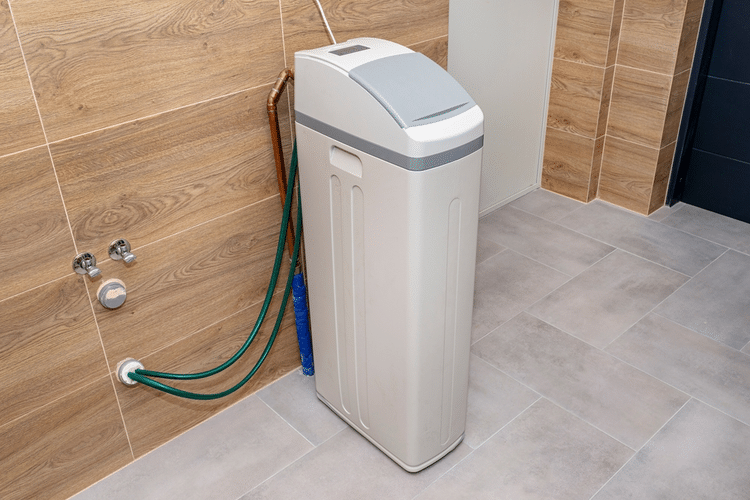
On top of that, water softeners adjust the pH level of water. This balances the pH levels in the hair and keeps them between 3.6 to 5.5 pH, which should help relieve you from dryness and itching on your scalp. It will also fortify your hair at the follicle, making it stronger and healthier.
If you’re using a water softener, we recommend keeping your tank one-quarter full of salt at all times. However, make sure that there is no more than 4-6 inches of salt from the top.
By keeping the salt levels a few inches above the water level, your tank will be set for optimal performance.
2. Rinse Your Hair with Filtered or Bottled Water
Using filtered, distilled, or bottled water is yet another way to keep your hair healthy against the effects of hard water. This approach can be inconvenient for some because it requires you to have purified water on hand at all times.
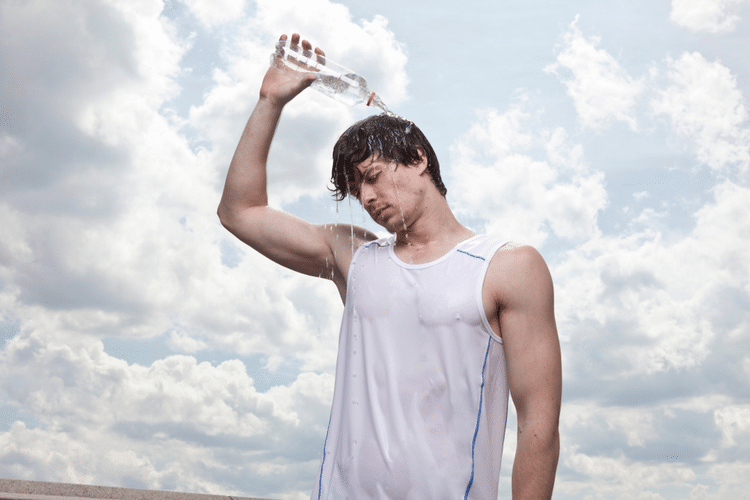
However, it’s one of the best and most effective ways to wash out mineral deposits and keep your strands healthy and beautiful. Do note that it’s a better idea to fix the hard water issue via a water softener in the long term.
3. Wash Hair With a New Shower Head or Filter
A new showerhead or filter system will remove the excess minerals from water in the shower. Old showerheads tend to have limescale build-up, which certainly doesn’t help things.
Showerheads and shower filters are affordable, simple to install, and readily available on Amazon or at most hardware stores.
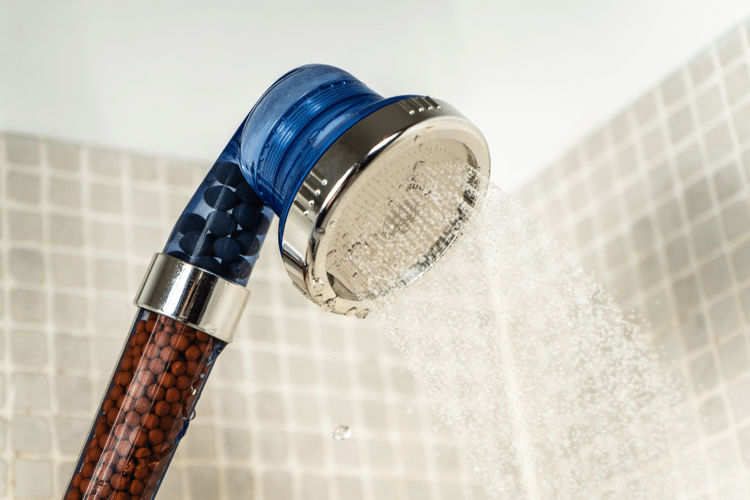
There are different types of shower filters to choose from, so take your time and do some research before your purchase. Most of them will reduce mineral deposits to improve your strand and follicle quality, but make sure to get one that best suits your situation.
4. Use a Leave-In Conditioner or Hair Mask
Using a leave-in or deep moisturizing conditioner on a weekly or semi-weekly basis can help relax your hair. Leave-in treatments are known to reverse brittle, straw-like texture.
That said, these products don’t offer complete protection like shower filters or water softeners since you’d be treating a symptom rather than resolving the issue of hard water. Unwanted minerals may still build up on your scalp.
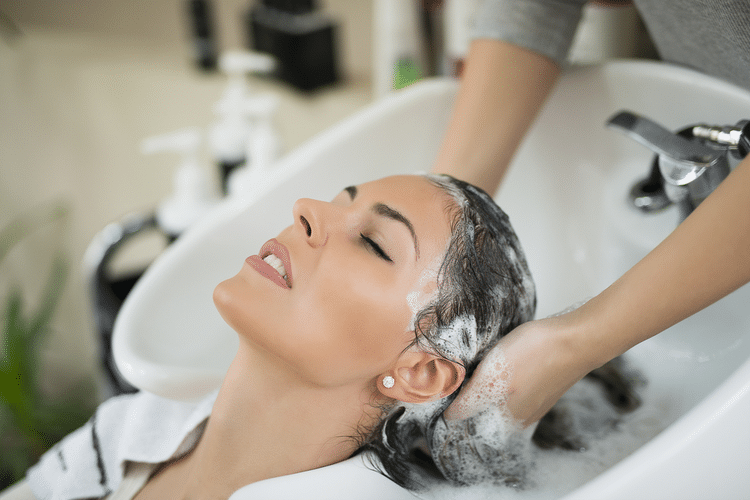
Either way, the best leave-in conditioners on the market are supplemented with natural oils such as coconut and argan oil, which help you have smooth, glossy, and moisturized hair.
Also Read: How to protect skin from hard water
The Effects of Hard Water on Hair
Hard water mainly has an excess of minerals, such as calcium and magnesium, that dissolve in the water.
When there is a high concentration of those minerals, washing hair with soaps alone can be ineffective. This is why people develop skin or scalp irritations and experience hair dryness even when using dedicated hard water soaps and shampoos.
So, how does hard water affect hair? Well, its effects depend on two factors: hair texture in combination with the hardness of the water.
Here are the most common side effects of washing your hair with hard water:
1. Dry Scalp
The magnesium and calcium that are present in hard water at high levels may dry out your scalp. When this happens, you’ll notice itchiness, dandruff, and general discomfort.

A dry scalp can also contribute to hair loss. When the scalp is dry, it contributes to a large number of strands coming loose prematurely, which eventually makes your scalp unhealthy.
2. Hair Loss
Even if the minerals don’t dry out your scalp, you can still experience hair loss due to weaken hair follicle.
People that tend to shed hair strands frequently will likely notice an increase in hair loss when using hard water.
For those that already have thinning hair, this can eventually lead to baldness.
3. Dulled Color
Hard water strips the hair of its vibrant hue and dulls its shine. Dyed hair is especially sensitive to hard minerals, which are known to cause the color to fade rapidly.
You can spend a fortune on a beautiful dye job, only for it to be ruined in just a handful of hard water rinses.
4. Rough Texture
Hard water can make your hair frizzy, dry, and brittle. If exposed to hard water for prolonged periods of time, your strands can lose their shine and take on a straw-like texture.
People with shorter hair may not see a stark difference, but those with long or thick hair will notice a drastic change in sheen and feel.
5. Breakage
Many people experience split ends and breakage as a result of hard water. As the texture of the hair becomes frailer, strands begin to snap, causing rough ends and thinning toward the tips.
Hard Water Hair Treatment: How to Reverse the Effects
The good news is that, in most cases, you will be able to reverse the side effects of hard water on your hair.
The best way to do this is to use conditioning products and treatments that can return it to a desirable condition. Rinsing your hair with restorative ingredients, such as citrus or vinegar, or even reverting to soft water via a water filter can repair some of the hard water damage.
1. Rinse Your Hair with Vinegar
Weekly rinsing your hair with vinegar may restore its pH levels and leave it feeling soft and fresh. Because vinegar is very acidic, it aids in the removal of mineral build-up that makes the hair weak and rough.
To perform a vinegar rinse, you will need equal measures of vinegar and filtered or distilled water. Apply the vinegar rinse to the scalp after shampooing. Work the mixture through the hair and leave it on for at least five minutes. After that, you can rinse and use a conditioner as usual.
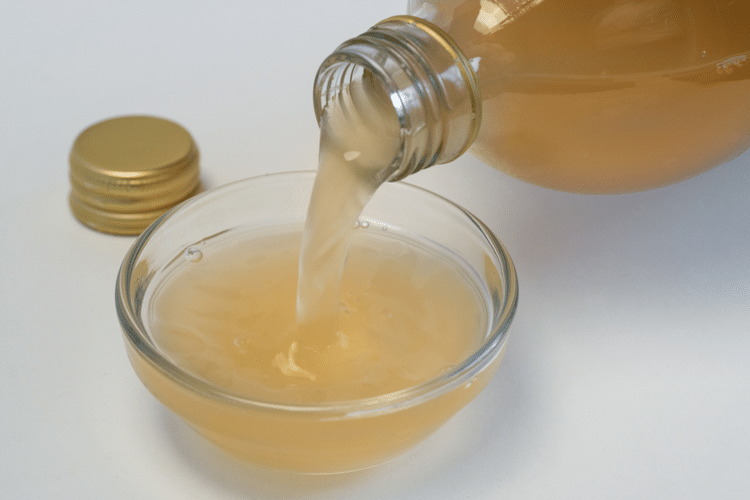
You will get the best results by using distilled white vinegar, but apple cider vinegar will do the trick too. Just avoid using red wine vinegar or rice wine vinegar, as these may leave an unpleasant smell.
2. Use Clarifying Shampoo
Clarifying shampoo works similarly to vinegar rinse in that it removes the mineral build-up caused by hard water deposits. Chelating shampoos are known to eliminate dirt and residue caused by grooming products.
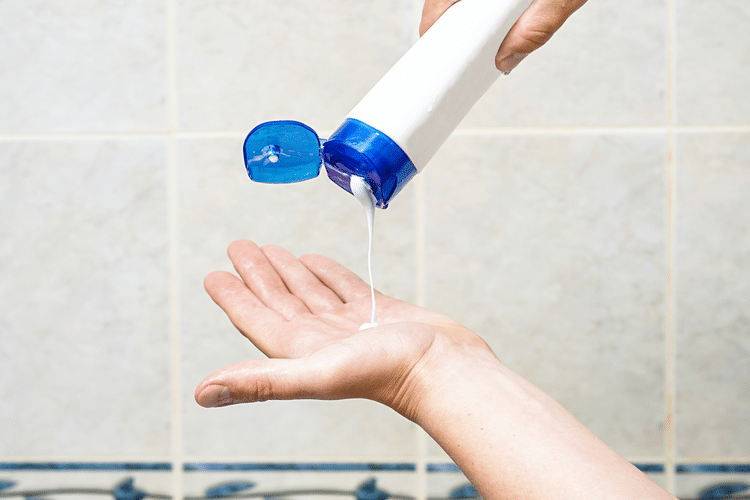
They are very effective against mineral build-up and leave your hair with a clean, fresh, and polished appearance. Try to limit the use of clarifying shampoos to weekly or monthly use. Using chelating shampoos daily or even bi-weekly can have adverse effects and dry your hair out.
3. Give Your Hair a Citrus Rinse
A citrus rinse made of lemon, lime, or orange juice works as a natural purifier. It removes the mineral deposits and leftover residue from your hair.
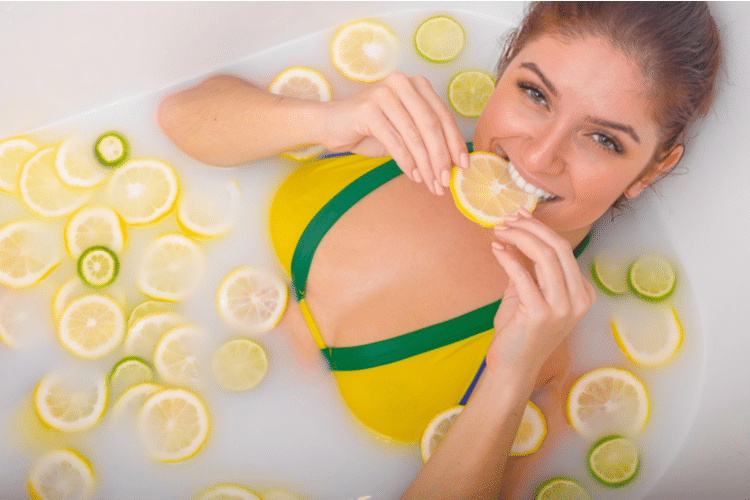
To perform a citrus rinse, juice a whole fresh lemon, lime, or orange, and dilute the juice with a three-to-one ratio of water. After shampooing, spread the citrus mixture throughout the hair and pay special attention to the scalp.
The natural antiseptic properties of the citrus will improve your skin texture, fight dandruff, and give your hair a healthier overall appearance.
What Is the Best Water to Wash Hair?
Distilled water is one of the best water choices when it comes to hair. It does not include hair-harming impurities or minerals, such as magnesium or calcium. Moreover, filtered, distilled, or bottled water actually removes the existing residue of minerals caused by hard water in showers.
Washing your hair in distilled water will improve its overall health and shine. In addition to eliminating and reducing unwanted minerals, distilled water will also help condition and hydrate your hair, preventing further split ends and breakage.
Because purified water doesn’t strip your hair of its natural oils or dye, its texture and appearance will be soft, smooth, and glossy.
In Closing…
You have two options when faced with hard water hair problems. You can either nip the problem in the bud by installing a water softener or remedy the problem by combining the different treatment methods mentioned in this article.
Regardless of your course of action, don’t underestimate the damage that hard water can do to your hair.
Thank you for such great information. I will be installing a water softener now as we live on a farm with water collected from the roof. Im thinking of all those deposits off the iron is wrecking my hair.
Jeanette McGhie